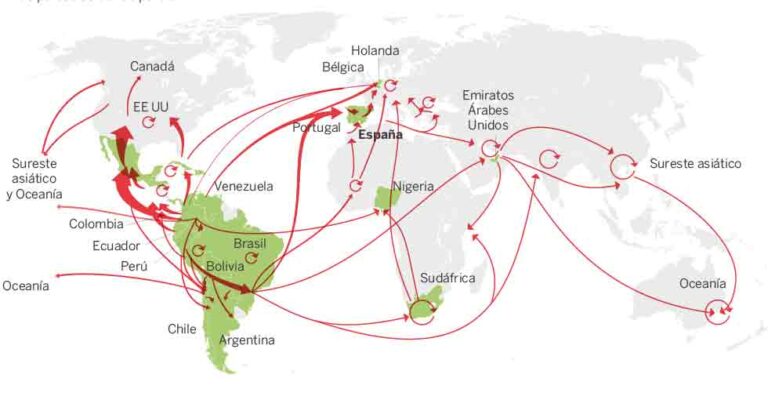The document of the United Nations Office on Drugs and Crime (UNODC) details that coca cultivation raised 35 percent between 2020 and 2021, a record and largest year-on-year increase since 2016.
The strong growth in supply is accompanied by a steady rise in demand for cocaine.
Even though the drug’s traditional markets of North America and Europe remain the most important, the huge production may allow it to expand into Africa and Asia.
In this global map, Uruguay occupies a place of trafficking and presents particular vulnerabilities, especially due to the actions of the First Capital Command, main Brazilian cartel, whose drug-laden aircraft fly over Uruguayan territory, where they drop the packages or land on clandestine airstrips.
The entry points for these flights include the northern departments of Artigas, Salto and Paysandu, the text points out.
Another route used within and from South America to other markets is the Southern Cone route, which runs from Peru and Bolivia to the Rio de la Plata.
Cargoes seek the estuary on the Atlantic coast between Argentina or Uruguay, often via Paraguay, and generally rely on the Hidrovía Paraguay-Paraná (HPP), often used in combination with clandestine flights,’ the UN points out.
The UN´s report, also refers to the transfer of drugs to ocean-going vessels, which makes the port of Montevideo a focal point for criminal groups.
Cocaine shipments are sometimes consolidated within Uruguay before being shipped out of its ports,’ the international body notes.
jrr/jav/mem/ool.









